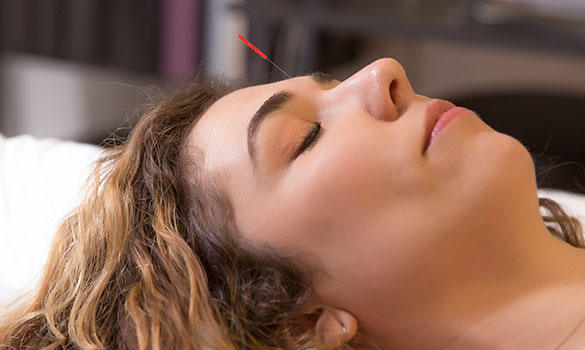An epidemic has been growing in Austin for years, before COVID was even part of our national consciousness. This epidemic is rarely recognized as the primary cause of death for any American, yet it is a risk factor for every one of the top 10 leading causes of death in our country. The epidemic that I am referring to, as you no doubt surmised based on this post’s title, is chronic sleep deficiency.
Chronic sleep deficiency is not top of mind for most of the public or policy makers when discussing the primary issues affecting our health as a nation, however this post argues why it should be. We’ll discuss the impact of chronic sleep deficiency on health and wellbeing, what actually happens when you sleep (and what you miss out on when you don’t!), and what we need to be doing in order to sleep better.
The CDC estimates that more than 1 in 3 American adults are sleeping less than 7 hours per night. Many of these sleepless nights can be explained by chronic sleep disorders (50 to 70 million Americans), shift work schedules (approximately two in every five workers), longer work hours, later night life, an increased relationship with technology and pervasive cultural idioms like, “I’ll sleep when I’m dead,” “sleep is for the weak,” and “you snooze, you lose”.
We do not tend to focus on adequate sleep as the biological imperative that it is because its most deleterious effects do not happen over (one) night. Fatigue, poor focus and concentration can be expected after 1-2 nights of poor sleep, but caffeine (America’s most popular drug) largely eliminates those symptoms altogether with short term use.
The real problems come when sleep deficiency occurs over the course of many years and decades. That is when we start to see memory impairment and increased risk for Alzheimer’s disease, immune system disfunction and autoimmune disease, and increasing risk of high blood pressure, cardiovascular disease, diabetes, depression, and even obesity.
Our health deteriorates over time when we are not sleeping because certain biological processes only occur when we sleep. During waking hours, our nervous system is at capacity working through near-constant sensory stimulation, real-time decision making and emotion-processing. When we sleep, our sensory organs and the decision and emotional centers of our brain get a much-needed break, while the “night-shift” systems of our body come online.
The “night-shift” bodily systems include the recently discovered glymphatic system – a system that mainly functions as waste removal for the brain. The glymphatic system is responsible for clearing toxic waste that builds up in the brain including beta-amyloid, a protein known to accumulate in the brains of Alzheimer’s patients. As important as this system is, it is mainly active when we sleep – studies show that is up to 90% more effective during sleep compared to awake.
Also as we sleep, neural connections form between different parts of the brain, allowing for long term memories to be created. Without this break from new sensory information, the brain does not have a chance to process the information that was taken in during the day, filtering out extraneous information and storing important information in the appropriate areas of the brain for later retrieval.
Energy is conserved while we sleep so the body adjusts hormone levels resulting in lower levels of ghrelin (the “hunger hormone”), and higher levels of leptin (the “fullness hormone”) which lead to people eating about 300 more calories per day on average when they are not well rested, resulting in higher incidences of obesity and diabetes in those who do not get adequate sleep.
Sleep is when our brain processes complex emotions effectively. Normally, the amygdala helps us regulate emotions such as fear and anxiety, but sleep deficiency has been shown to illicit a stronger amygdala response compared to those without sleep deficiency and this could explain why chronic sleep deficiency doubles your risk for depression.
Sleep is an important time for the immune system to communicate about potential threats and take action to mount a response. Lack of sleep greatly increases your chances of catching a cold and can even increase your risk of cancer.
Clearly the data is there. Anyone who looks at the research will come away with the same conclusion – that chronic sleep deficiency is an enormous public health crisis. So, if it is this clear, the million dollar question is what can we do to help people sleep better?
The overwhelming answer coming from conventional medicine for the last 30 years has been… drugs! Sleep aids make up an industry generating $70 billion per year . 55% of Americans regularly take at least one prescription drug and those who use a prescription take 4 different medications on average.
The problem with pharmaceuticals in the treatment of sleep is that they have unintended consequences. Although they can help people sleep, there is evidence that the type of sleep is not as deep or restful; sedation from these drugs is not the same as sleep. Not to mention potential side effects of some of these drugs include minor inconveniences like headaches, nausea and dizziness to more serious conditions like suicidal thoughts, sleep paralysis, and rebound insomnia (making it harder to come off of the medication).
This is not to say that pharmaceuticals do not have a place in the treatment of sleep disorders – in many cases they play a vital role. However, an integrative approach that focuses on using a combination of therapies will provide the safest and most effective long-term solution in most cases.
Instead of only focusing on pharmaceutical options, and picking the best drug option out there, integrative medicine allows us to pick the best group of options out there, drug or otherwise.
An integrative approach to sleep works with the individual patient to prescribe what is most likely to work and has a vast number of options to choose from. Commonly, lifestyle, exercise, nutrition and other non-pharmaceutical options are going to be considered first because they will typically be safer, have less side effects and in combination have far better long term results than pharmaceuticals.
A typical integrative plan for treating sleep challenges will be based on research and be formulated for each individual patient, but an example plan may look like this:
- Exercise for 30 minutes every day. There is substantial evidence showing that exercise improves sleep quality.
- Spend time in the sun each day. Exposure to light has been shown to affect the circadian rhythm, and vitamin D deficiency may be involved in melatonin secretion.
- Turn down lights and avoid screens 1-2 hours before bed. Light exposure and specifically blue-light exposure from screens impedes our body’s ability to secrete melatonin and make us feel sleepy.
- Avoid caffeine, nicotine and alcohol altogether if possible. If not possible, avoid later in the day as much as possible.
- Chinese herbal formula and supplements would be prescribed based on the presentation. For example: An Mien Pian (Chinese herbal formula), CBD 10 mg at night, Melatonin 1 mg at night.
- Acupuncture 2x/week. Acupuncture has been shown to have significant effects on sleep quality.
- Mindfulness meditation 2x/day. 10 min meditation in the morning following the breath and 10 min at night body scan technique.
Our national sleep deficiency is causing wide-ranging, short and long-term health effects and contributing heavily to our spiraling health care costs. Sleep is a biological necessity and the processes that occur when we sleep cannot be made back up by any drug, therapy, scientific advancement or by “catching up” when you can. It is time we faced this crisis head-on, acknowledging that the only thing that will help is regular, deep, blissful slumber.







